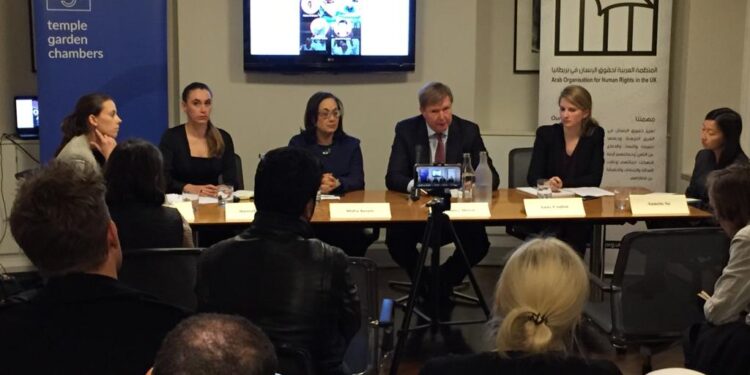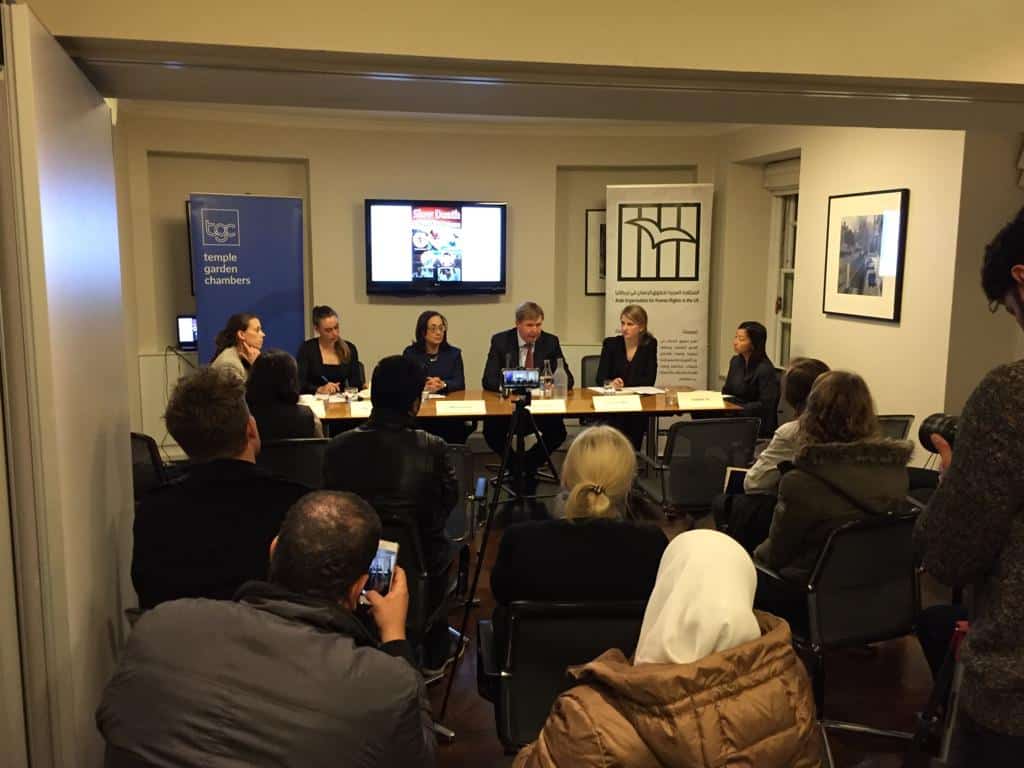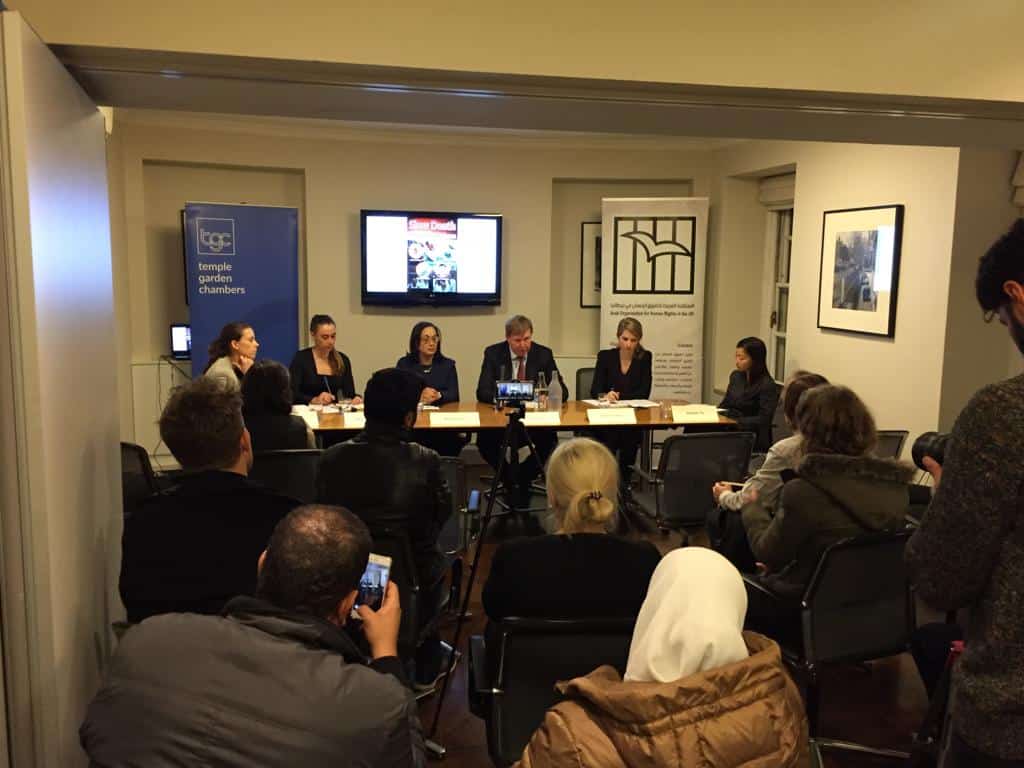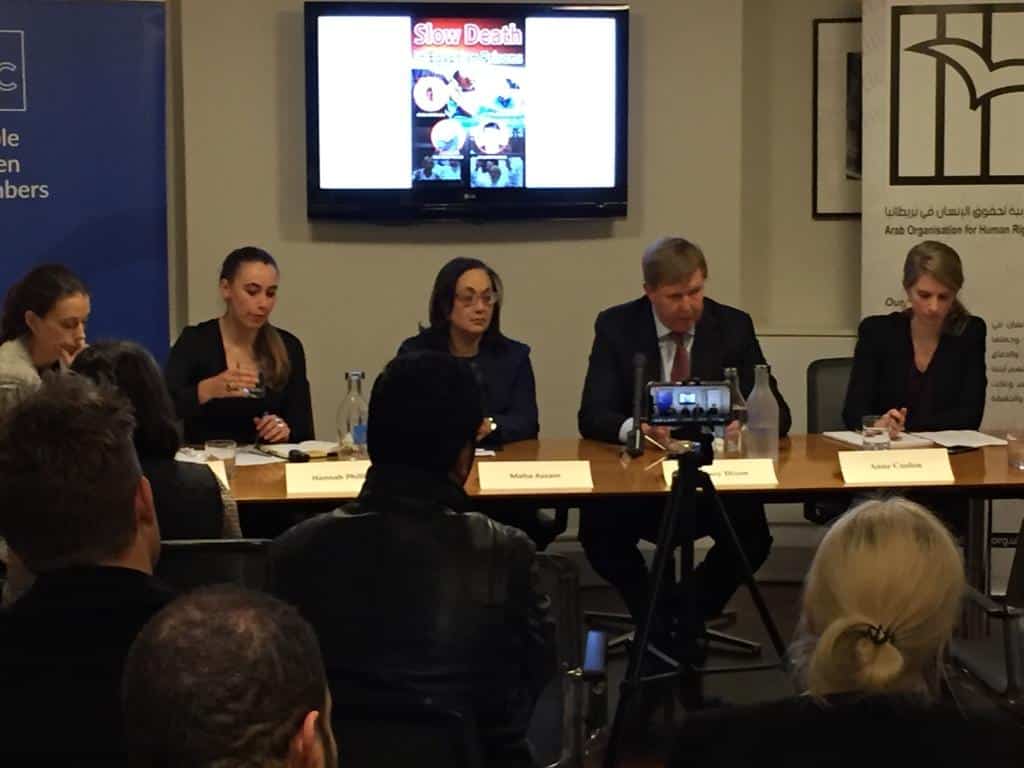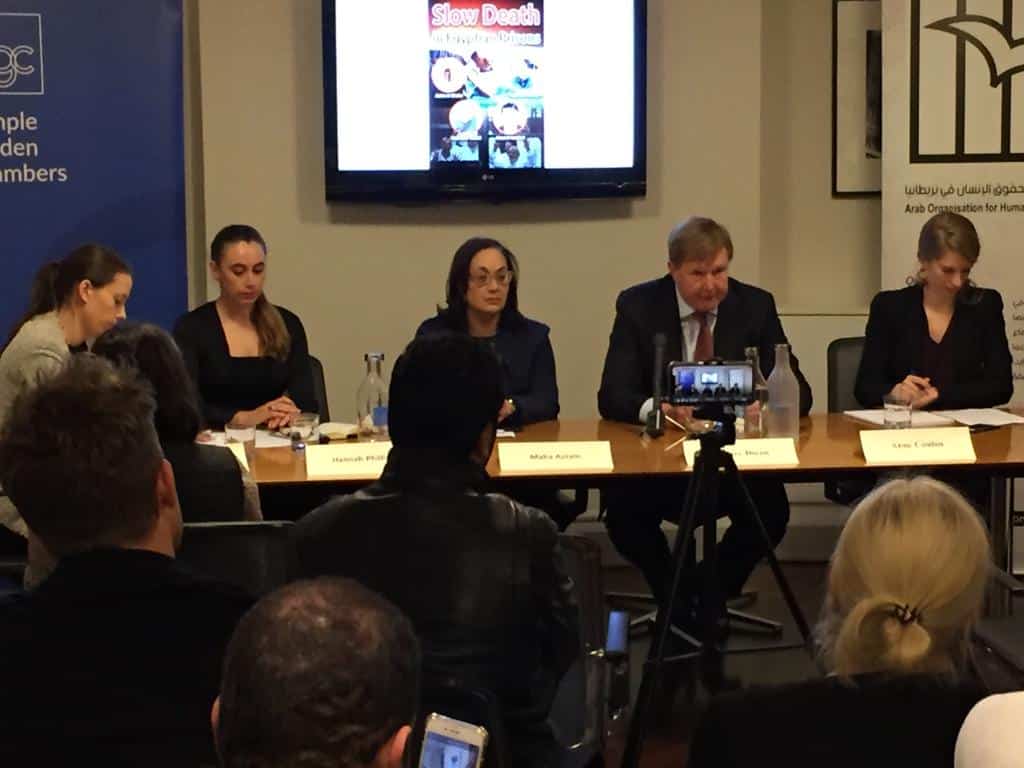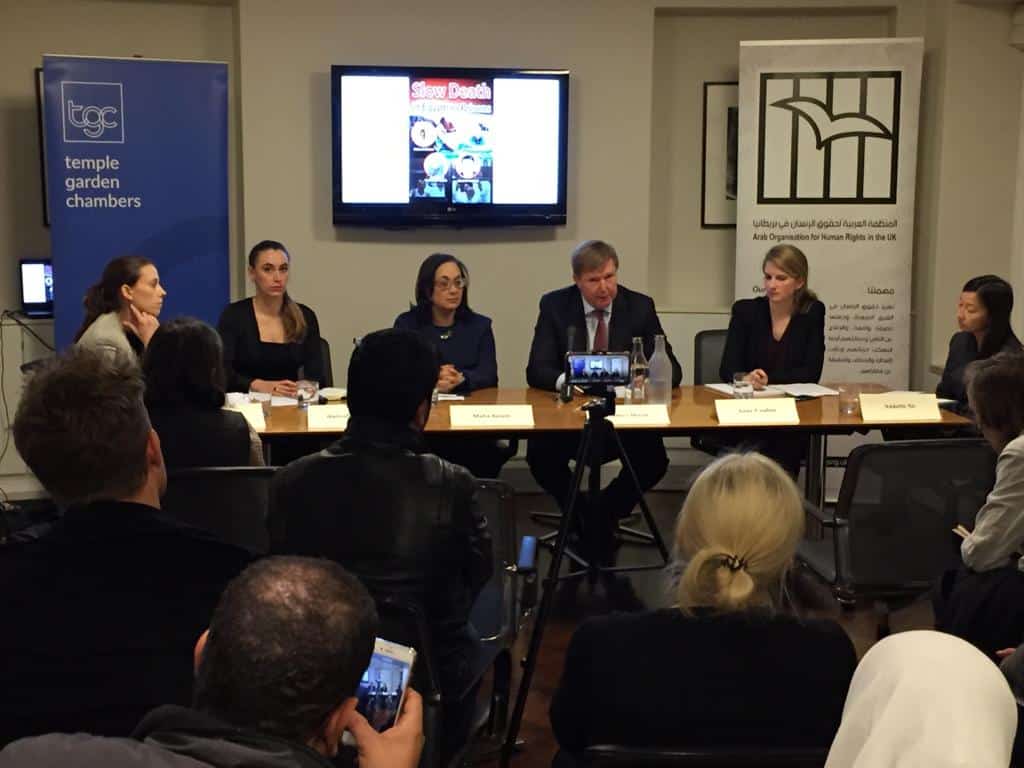Over 600 persons have died in Egyptian prisons since 2013 from deplorable conditions and gross medical neglect, and many others have been tortured to death.
This alarming pattern of ‘slow death’ in custody forms part of a consistent and intentional practice by the current Government of Adel-Fattah Al-Sisi to silence and crush all opposition.
An effective, independent and impartial investigation must take place into the unlawful deaths of all prisoners who have died in custody, and the perpetrators must be prosecuted.
Collective UN and international action is urgently needed to save the lives of thousands of prisoners who remain at serious risk in Egyptian jails.
At an event in the Temple, London today, leading Human Rights lawyers and experts have called for urgent intervention to save the thousands of detainees languishing in unbearable conditions in Egyptian prisons. This follows recent reports that have revealed an alarming number of deaths in Egyptian jails due to extremely poor detention conditions, massive overcrowding and the lack of medical care and treatment.
It was highlighted that since 2013 over 600 persons have perished while in custody as a result of the insufferable environment, gross medical neglect and a complete failure to provide basic health care. Over one hundred more persons have died from being tortured and mistreated in prison. Others have been executed following fundamentally flawed and unfair trials.
Those prisoners affected have mostly been persons detained for opposing the government, activists, human rights defenders and journalists. The facts show a clear policy and pattern of killing detainees slowly through especially harsh prison conditions and flagrant neglect.
Many thousands of others languishing in Egyptian jails are at serious risk. A panel of UN experts recently found that Dr. Mohamed Morsi’s death following being held for 5 years in “brutal conditions” in prison in Egypt could amount to a State sanctioned arbitrary killing, and warned that the health and lives of many more detainees was in severe danger.
The speakers at the event in London highlighted the facts about what is actually happening in Egyptian prisons, and addressed the urgent remedial action that is required to rescue those who are still in custody and at the mercy of the Egyptian authorities.
Rodney Dixon QC, Barrister and International Human Rights Law specialist, said: “Things only become unchangeable when people start to believe that is the case – we must not allow the Egyptian authorities to believe that their shameful treatment of detainees is the norm, and that they can get away with it without any consequences. It is inexcusable that so many persons have died and that so many more are endangered, without any sanction at all. The UN and all States who respect humanity and human rights must collectively require that there is change urgently, to save the lives of those who are at peril and who suffer daily in Egyptian prisons.”
Hannah Philips , Researcher on deaths in detention in Egypt, Arab Organisation for Human Rights in the UK (AOHR) stated:
“Currently access to medical care inside the Egyptian prison system far neglects the very basic legal standards set in domestic and international law for the treatment of prisoners. There is a clear policy of medical negligence towards political prisoners resulting in deaths that need to be understood as a deliberate policy of slow killing. In the case of Jihad Al-Haddad, his mother has detailed the inhumane conditions Jihad faces in a disciplinary cell inside Scorpion prison, there are no windows, no day light, no toilet and no contact with the outside world. These inhumane conditions combined with deliberate medical negligence against political prisoners are clear violations of international law; the international community must put pressure on the Sisi regime to end its policy of slow killing.”
Dr Maha Azzam, Leading expert from Egypt, former Associate Fellow Chatham House, said:
“We are witnessing an acceleration by the regime and it’s security services of violations against Egyptian citizens who dare speak out. The regime wants to ensure that the barrier of fear is not broken and that the price for speaking out is severely punished either through arbitrary detention, torture, disappearance, and even killing. The regime believes that any margin of tolerance or freedom of assembly or freedom expression will threaten it’s survival and could help bring about the end of the military dictatorship. All those who believe that Egyptians dissidents should not be tortured to death should put direct pressure on the regime of Abdel Fattah al Sisi to comply with the Convention Against torture to which Egypt is a signatory and to pursue all legal channels to hold Sisi himself and his security services accountable.”
Anne Coulon, US lawyer, former Principal Legal Advisor to the President of the International Court of Justice (ICJ), said:
“The recent UN findings are very serious. It was found that thousands of detainees across Egypt may be at risk of death. The Egyptian government must therefore take urgent action to ensure human rights are respected in Egyptian prisons.”
Annette So, Deputy Director, The Death Penalty Project, emphasised that:
“Over 75% of the world’s nations now recognise the death penalty to be an inhuman and degrading punishment that is incompatible with the right to life. Even many countries that grimly hang on to the death penalty have come to accept that the question is no longer whether they should abolish capital punishment, but rather how and when. Egypt shows no signs of such progress – on the contrary, there is a significant increase in the number of death sentences imposed, from at least 402 in 2017 to at least 717 in 2018. There is a positive duty on states that retain capital punishment to cause the least possible physical and mental suffering to the individual and to ensure all recognised fundamental human rights are guaranteed to those facing the death penalty. Due regard must be had for all minimum fair trial guarantees, as well as the UN Standard Minimum Rules for the Treatment of Prisoners, otherwise the execution becomes arbitrary and cruel.”
Sian Reeves, Barrister and Human Rights Law expert, highlighted that:
“The patent systemic breaches of national and international prison standards in Egypt cannot be ignored any longer – immediate investigation and remedies are required without delay”.



















